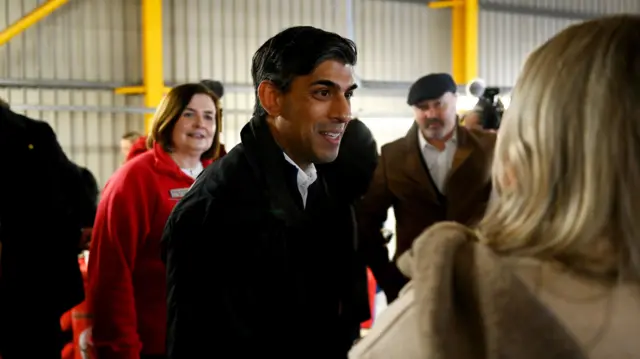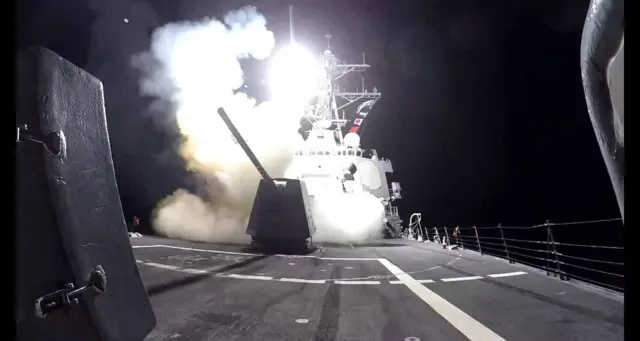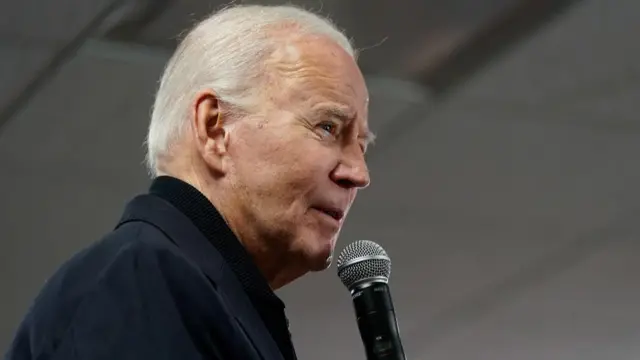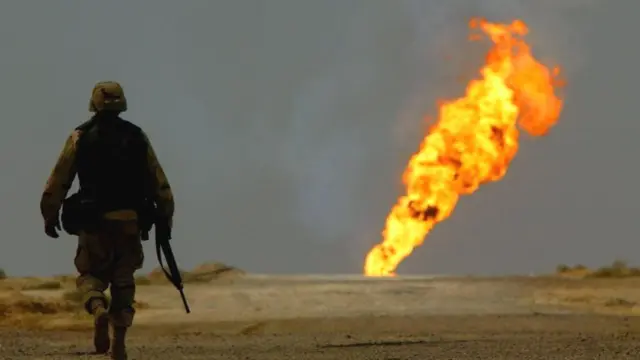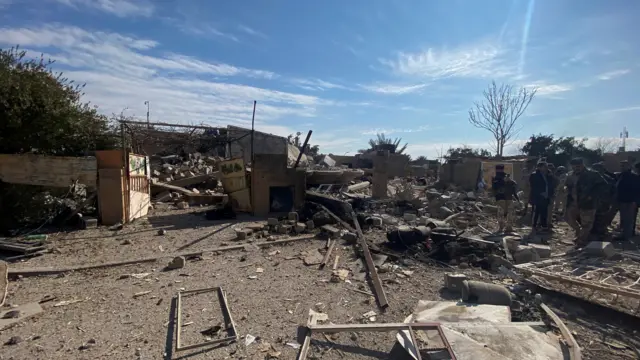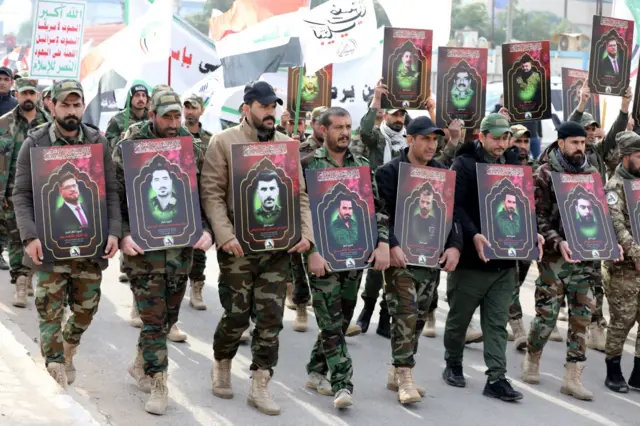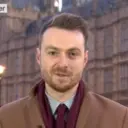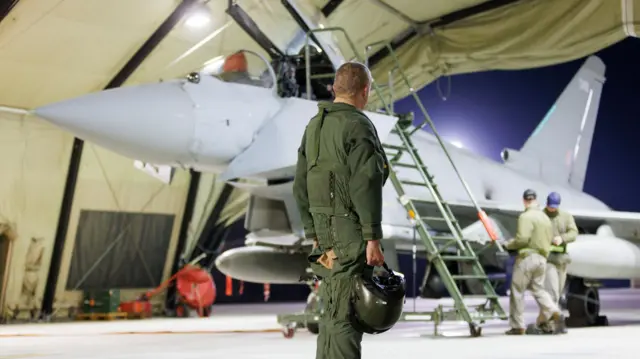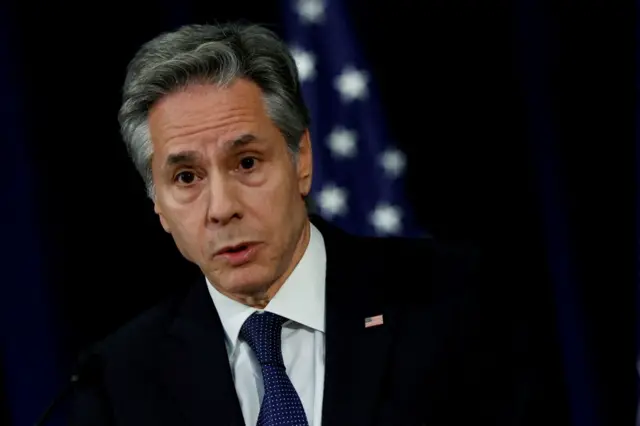What's the latest?published at 00:01 GMT 5 February 2024
Francesca Gillett
Live reporter
It's just gone 03:00 in Iraq and Syria, midnight in London and 19:00 in Washington DC - and we're wrapping up our live coverage for now.
We weren't sure if the US was going to carry out more air strikes in the Middle East tonight.
On Friday, they launched a series of strikes on Iran-linked sites in Iraq and Syria, in retaliation for the drone attack on the US air base last weekend which killed three soldiers. Defence officials have told US media - including CNN and NBC - that the US hit 84 out of 85 targets but there were no indication that any members of Iran's Revolutionary Guard Corps was killed.
Then on Saturday, the US and UK launched a third round of military strikes against Houthi bases across Yemen. The Houthis have been attacking international ships in the Red Sea and have vowed to hit back.
The US said on Sunday that the strikes on Iran-backed groups in Iraq and Syria would continue, but as yet we don't know when they might be.
What's next?
- On Monday, US secretary of state Antony Blinken will arrive in the Middle East for his fifth visit since the Israel-Hamas war began
- And the UN Security Council will hold a meeting on Monday afternoon on the US strikes in Iraq and Syria. It was requested by Russia, who said the US was threatening global peace and security

